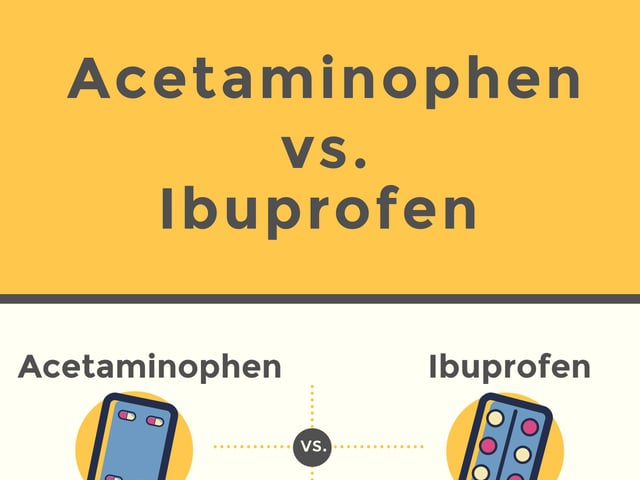
Acetaminophen vs. Ibuprofen
As a pharmacy technician, you will often encounter patients seeking advice on over-the-counter pain relievers. Two of the most commonly used pain relievers are acetaminophen and ibuprofen. While both are effective in managing pain, they have different mechanisms of action, indications, and potential side effects. Understanding these differences is crucial for a pharmacy technician to provide accurate advice to patients. In this article, we will discuss the key differences between acetaminophen and ibuprofen.
Mechanism of Action
Acetaminophen is a non-steroidal anti-inflammatory drug (NSAID) that works by blocking the production of prostaglandins, chemicals in the body that cause pain and inflammation. It is also believed to affect the pain threshold in the brain. Unlike other NSAIDs, acetaminophen does not have anti-inflammatory properties.
On the other hand, ibuprofen is a non-selective NSAID that works by inhibiting the production of prostaglandins, reducing inflammation and pain. Ibuprofen is also used to reduce fever.
Indications
Both acetaminophen and ibuprofen are used for pain relief, but they have different indications. Acetaminophen is primarily used for mild to moderate pain relief, such as headaches, toothaches, menstrual cramps, and arthritis. It is also used to reduce fever.
Ibuprofen, on the other hand, is used for a wider range of conditions, including pain relief, fever reduction, and inflammation reduction. It is commonly used to treat conditions such as headaches, toothaches, menstrual cramps, arthritis, back pain, and sports injuries.
Dosage
The recommended dosage for both acetaminophen and ibuprofen varies depending on the age and weight of the patient. It is important to read and follow the label instructions carefully, as exceeding the recommended dosage can lead to serious adverse effects.
Acetaminophen is available in various strengths, including 325mg, 500mg, and 650mg tablets, as well as liquid formulations. The maximum daily dosage of acetaminophen for adults is 4,000mg per day, and the maximum dosage for children is based on their weight.
Ibuprofen is available in various strengths, including 200mg and 400mg tablets, as well as liquid and chewable formulations. The maximum daily dosage of ibuprofen for adults is 3,200mg per day, and the maximum dosage for children is based on their weight.
Side Effects
Both acetaminophen and ibuprofen can cause side effects, and it is important to be aware of these when advising patients. Acetaminophen is generally considered safe when used as directed, but exceeding the recommended dosage can cause liver damage. Patients with liver disease or who consume alcohol regularly should be cautious when taking acetaminophen.
Ibuprofen can cause gastrointestinal side effects, including stomach pain, nausea, and diarrhea. It can also increase the risk of bleeding and heart attack or stroke, particularly when used long-term or in high doses. Patients with a history of gastrointestinal bleeding, heart disease, or stroke should be cautious when taking ibuprofen.
Drug Interactions
Both acetaminophen and ibuprofen can interact with other drugs, including prescription and over-the-counter medications, supplements, and herbal products. It is important to advise patients to inform their healthcare provider or pharmacist of all medications they are taking before starting any new medication.
Acetaminophen can interact with certain antibiotics, blood thinners, and medications for high blood pressure.
Ibuprofen can interact with certain antidepressants, blood thinners, and medications for high blood pressure.
Conclusion
In conclusion, both acetaminophen and ibuprofen are effective pain relievers that have different mechanisms of action, indications, dosages, potential side effects, and drug interactions. As a pharmacy technician, it is essential to understand the differences between these medications and to advise patients on their appropriate use. Always remind patients to read and follow the label instructions carefully, and to inform their healthcare provider or pharmacist of all medications they are taking before starting any new medication. By doing so, we can ensure the safe and effective use of these medications to manage pain and improve patients’ quality of life.
| ACETAMINOPHEN | IBUPROFEN |
| BRAND NAMES: Tylenol, Excedrin | Advil, Aleve |
| MAX ADULT DOSE: 4000mg | 1200mg |
| AGE RANGE: infants-adults | 6 months-adult (avoid in pregnancy) |
| BEST FOR: cramps, headache | inflammation, fever, osteoarthritis |
| SIDE EFFECTS: liver toxicity if used in excess or with alcohol | gastrointestinal bleeding, ulcers, kidney damage |
| AGE RANGE: infants-adults | 6 months-adult (avoid in pregnancy) |

Keep Reading

PTCB Pharmacy Technician Certification Exam Blog
Memorable Mnemonics: Master Drug Knowledge for the PTCB Exam
Studying for the Pharmacy Technician Certification Board (PTCB) exam is…

PTCB Pharmacy Technician Certification Exam Blog
The Top 200 Drugs on the PTCB
The Pharmacy Technician Certification Board (PTCB) exam is the final st…

PTCB Pharmacy Technician Certification Exam Blog
Is the PTCB Exam Hard?
Is the PTCB Exam Hard? Did you know that in 2021, over 430,000 pharmac…